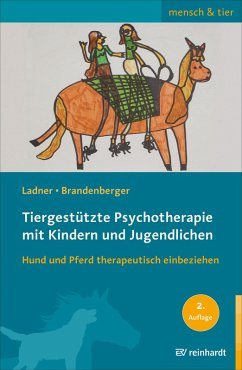
Attachment to Pets (eBook, PDF)
An Integrative View of Human-Animal Relationships with Implications for Therapeutic Practice
Versandkostenfrei!
Sofort per Download lieferbar
Statt: 34,95 €**
30,99 €
inkl. MwSt. und vom Verlag festgesetzt.
**Preis der gedruckten Ausgabe (Broschiertes Buch)
Alle Infos zum eBook verschenkenWeitere Ausgaben:

PAYBACK Punkte
0 °P sammeln!
The biological and psychological basis of pet therapy / animal-assisted therapy and what this means for practice "A comprehensive, scientific foundation for human-animal therapy." (Judith Solomon) In recent years, the ancient symbiosis between humans and their pets has entered a new phase, marked by the burgeoning clinical specialty of human-animal therapy. This approach uses the relationship between humans and their (mainly) mammalian pets to support the growth of emotion regulation, social skills, and mental health in children, adolescents, and adults. But how are humans and animals able to ...
The biological and psychological basis of pet therapy / animal-assisted therapy and what this means for practice "A comprehensive, scientific foundation for human-animal therapy." (Judith Solomon) In recent years, the ancient symbiosis between humans and their pets has entered a new phase, marked by the burgeoning clinical specialty of human-animal therapy. This approach uses the relationship between humans and their (mainly) mammalian pets to support the growth of emotion regulation, social skills, and mental health in children, adolescents, and adults. But how are humans and animals able to develop close bonds at all? What makes it possible for animals to have a therapeutic effect on humans? And how can we best use this understanding in animal-assisted therapy? In this unique book, a team of expert biologists and psychologists integrate and combine sophisticated biological and psychological knowledge to answer these questions. Together they have created a comprehensive, scientific foundation for human-animal therapy, a foundation that will facilitate the development, implementation, and evaluation of effective new interventions.
Dieser Download kann aus rechtlichen Gründen nur mit Rechnungsadresse in A, B, BG, CY, CZ, D, DK, EW, E, FIN, F, GR, H, IRL, I, LT, L, LR, M, NL, PL, P, R, S, SLO, SK ausgeliefert werden.













